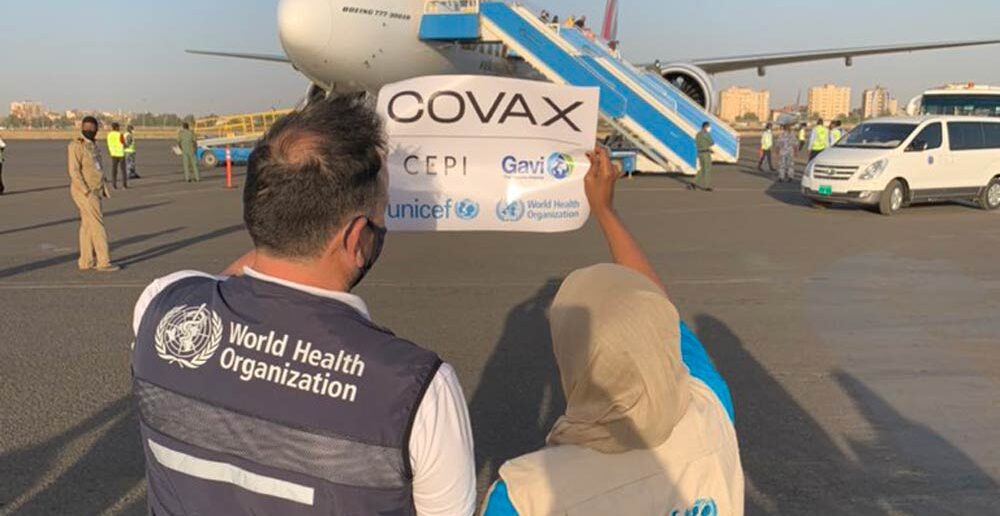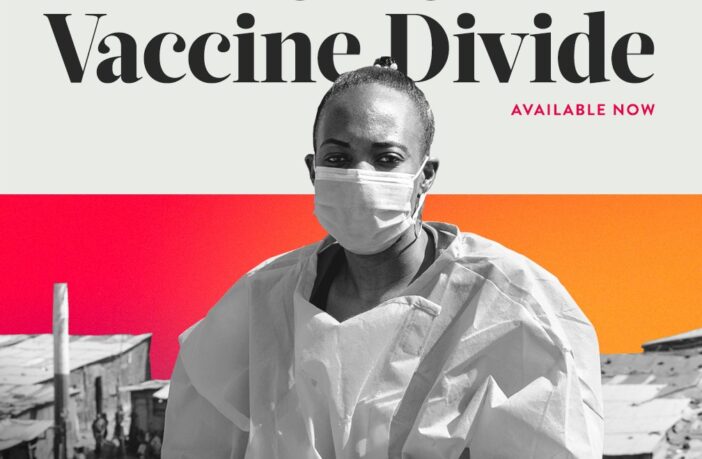“The way that we just give multinational profit-making, profit-prioritising pharmaceutical companies, complete control of which products get developed and then where gets access primarily based on who can pay the most is a system that is fundamentally failing. And I hope that one thing that comes out of this pandemic is that people start to see that failure, and that that cannot continue because actually we’re really not safe unless everyone is safe.”
The latest episode of the Global GoalsCast podcast has landed and this time offers a fascinating perspective on the roll out of the Covid 19 vaccines.
The above quote is from Roz Scourse from the Access Campaign of Médecins Sans Frontières, an organisation which has been campaigning for years to get more equipment, treatments and vaccines to poor countries.
Roz told the podcast
“I think firstly, it’s a complete tragedy that we’re seeing this happen again. Activists around the world have seen this scenario playing out again and again, multiple times with different diseases.
We saw this with HIV, for example. People living in richer countries got access to HIV medication 10 years before people living in Africa with HIV got access. And that lag led to 12 million extra deaths that were preventable because there was a treatment that existed that could prevent these deaths. the fact that we haven’t learned those lessons and we’re seeing this playing out again is a global failure. The system that we have that controls how medicines and health products are developed and then distributed and controlled globally is completely failing us.”
Roz in particular thinks that the richer countries like the UK and the US who have bought a high percentage of the vaccines may be a little short-sighted in their approach
“You could vaccinate the entire UK population and you’d still be at risk because you might see a variant incoming that vaccines are no longer effective for. I think there’ll be this realisation that actually we do have to care about each other. All lives are important and we have to put those lives above pharmaceutical profits.

In the podcast interview, Roz talks about the role of COVAX, the organisation overseeing the distribution of the Covid19 vaccine, which incidentally is backed by the WHO and UNICEF, arguing that its work has been ham-strung.
“We know that COVAX has suffered financially, but also in terms of the supply that it’s been able to secure, and this is primarily because there was no requirements as part of COVAX for all governments and companies to procure and supply through COVAX. And so many countries and governments are going outside of COVAX and that’s leaving the lower middle-income countries, which are relying on COVAX to go without.
A potential solution?
MSF isn’t just highlighting the problem. It believes there is a solution. It has come out in favour of a proposal from South Africa and India around the IP of the vaccines.
“The proposal from South Africa and India is now supported by over a hundred countries, primarily from the global South. And it is a proposal to the world trade organisation, which basically oversees intellectual property rights and law globally need to waive intellectual property rights on Covid19 medical technologies. This would include vaccines, treatments, diagnostics, but also things like personal protective equipment, ventilators.
What intellectual property rights do is that they basically provide a period of exclusivity or protection for the originator] company for a set period of time, meaning that no other manufacturers can produce that product. And so basically that gives the originator company complete market exclusivity so they can charge whatever price they would like, or they completely control the market, including the supply.
What they’re saying is we can’t have that in a pandemic. We can’t have prices set by a handful of companies limiting available global supplies. This is completely unprecedented. Everyone needs access to these products at the same time, we need to maximise the available global suppliers of these products.”
Creating a proposal is one thing, getting the rest of the world to agree to it is another. Politicians in countries that have invested heavily in Covid19 vaccines like the UK are seeing a vaccine bounce in the polls. At the same time the EU is having its own issues over vaccine distribution, especially when it looks across the channel and sees how its erstwhile member the UK appears to be leading the way in vaccine roll out.
“We’re seeing opposition from most of the rich countries,” says Roz. “For example, the UK, the EU, the US who have already secured their own access to Covid19 vaccines.
They’re basically blocking this from going ahead, they’re blocking other countries from being able to] start producing their own supplies, to save the lives of their own populations.”
It should be noted that pharmaceutical companies are voluntarily offering licenses to make the vaccine. For example, COVAX delivered its first doses to Ghana, made under a license from AstraZeneca to an Indian manufacturer. But Roz says this voluntary approach isn’t nearly good enough.
“None of these license agreements are public, so there’s no transparency. And the detail of these is really important so that we can better understand who’s actually going to get access to these products. We already know from a few leaked versions that the no-profit commitment will actually come to an end at a point determined by AstraZeneca and in their contract they included that would be July, 2021. And so obviously that’s very soon and the pandemic is not over and it’s not up to them to decide that the pandemic is over and after that period, they could increase the prices.
We also know that Uganda is paying $7 a dose for this vaccine, whereas the EU is paying just over $3 a dose. It makes no sense, firstly, that alone can country would be paying more than double for this vaccine, but also based on their no-profit pricing commitments.
Why are we seeing these price discrepancies around the world? if it’s no-profit pricing, then why are we seeing such different prices? And they need to also prove that it’s no-profit pricing by opening their books. there’s a lot of challenges around relying on, just the goodwill of pharmaceutical companies.”
Roz also adds that this is just the approach from one company – AstraZeneca. And there’s a number of challenges with that.
“They’re seen as like the best player in terms of access, there were a number of other companies like Moderna, Pfizer, who have made really clear that they intend to profit from this pandemic, their vaccines are charged multiple times the price of the AstraZeneca product. So we know that they’re going to be making huge profits and access for lower middle-income countries will be virtually impossible for these products.”
You can hear the full interview with Roz, as well as voices from across the planet talking about their experience of Covid19 on the latest podcast – just click on the link below


